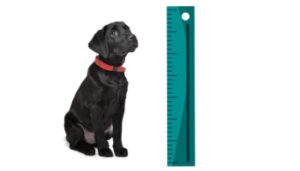
As any longtime dog owner will tell you, male dogs have a special set of problems. I’m talking, of course, about all those knucklehead behaviors that result from their strong mating instinct. I’m talking about aggression, territoriality, and a persistent desire to find and breed any female within smelling distance.
Should you neuter your dog? The answer is not a simple “yes” or “no.” It really is something that has to be determined on an individual basis. Depending on your dog and its habits, this may or may not be a good idea.
As you can see, you’ve got an important and complex decision to make. The purpose of this article is to (hopefully) provide you with the information you need to decide whether or not this procedure is right for your animal. Read on, and I guarantee we will at least save you some research time.
Consider Your Dog’s Job
Depending on the job that your dog does, neutering may have the potential to destroy your dog’s usefulness. In the old days, people only kept an animal that earned its kees. Although we have gotten away from this idea somewhat in modern times, the basic principle still applies. For dogs, they can earn their keep as hunting dogs, breeding animals, guard dogs, search-and-rescue dogs, seeing-eye dogs, etc. Even in the case of a simple household pet, the animal is still earning its keep by providing companionship and affection. The point is, your male dog has a job, and if you want him to continue doing that job to the best of his ability, you may not want to go and mess with his testosterone levels.
The Family Pet
Let’s think about these common canine jobs, one at a time. If your dog is just a household companion who serves no other purpose at all, neutering might be a good idea. However, it isn’t really necessary unless the dog is having issues with aggression, or maybe with uncontrolled humping. A household pet who isn’t starting any serious trouble doesn’t usually need to be neutered. However, if they begin to show aggression (particularly the out-of-control kind) and you have small children around, you might want to consider neutering. A companion dog might be less playful after neutering, reducing their ability to perform their function. If it’s a lazy lapdog, you probably won’t see a whole lot of difference.
Assistance Dogs
For a seeing-eye dog or other dogs that assist the disabled, neutering might be a good thing to consider. It is very important for these kinds of dogs to have a good and even temperament. These animals spend a lot of their time in public places and must be able to maintain a higher degree of discipline. A seeing-eye dog with an aggression problem is a bad idea since the owner will probably be unable to help if the dog gets out of hand. The job of an assistance dog is to tend to a specific human need, and it’s kind of hard to do that if they are getting in fights with other dogs or frantically humping the legs of passing strangers. As with a family pet, though, you shouldn’t neuter unless behavioral problems make it necessary.
Hunting Dogs
As Labrador owners, this section is of the utmost importance for us. This is because the Labrador Retriever has always been a hunting dog. While many of them also serve as family pets and virtually all other canine jobs, their true specialty lies in their affinity for hunting. Their identity as a hunting dog has shaped virtually all the behaviors that Labs are famous for, such as their love of water and their tendency to fetch.
I would strongly advise against neutering any dog that is actively being used as a hunting dog. There is just no way that the dog is going to have the same level of energy and motivation without their primary sex hormones. Although Labradors don’t usually do the killing, they are still an active part of the hunt, and it requires a strong and virile animal to do this job at top performance. Asking your dog to hunt without his testosterone would be like asking Tarzan to swing without his vine.
Guard Dogs
As I said, I strongly advise against neutering a hunting dog. When it comes to guarddogs, this is an absolute rule. Do NOT neuter a guard dog. If you do, you will remove most (if not all) of the territorial aggression that is desirable for this kind of dog. Now don/t get me wrong; you don’t want a mean dog. You certainly don’t want a vicious dog. However, you want an animal that will defend their territory with a certain level of ferocity. Finding this balance between teddy bear and monster is the key to proper guard dog training. However, since aggression is influenced heavily by the presence or absence of testosterone, taking this hormone out of the picture will throw everything out of
Breeding Animals
It goes without saying that a breeder doesn’t want to neuter their animals. However, a breeder might want to consider neutering a dog once it is retired from breeding. However, once they reach that age, it will likely not even be necessary.

Search And Rescue Dogs
For this kind of dog, it is hard to say if neutering will affect their ability to do their job. Since the job of a search and rescue dog has nothing to do with aggression or mating, neutering is unlikely to stop them from being able to do their job. However, some people say that neutering a dog will lower its energy level, which could be bad for periods of extended work. We might also say something about police dogs, which do similar work. According to several police officers, neutering generally does not affect the ability of a canine to do its job.
Age Is Also A Big Factor
You should also consider the age of your dog before having him neutered. Your dog’s age can have a powerful
First of all, never neuter a dog that hasn’t yet reached sexual maturity. There is plenty of evidence to show that this is a very bad idea. Some researchers have actually recommended early-age sterilization, such as the authors of this study. However, if you look closely, you can see that they acknowledge the risks that come with early-age neutering. The authors were simply of the opinion that the procedure offered “more benefits than risks.” I don’t know about you, but I don’t consider that to be acceptable at all. Here is a more thorough study that shows significantly higher rates of hip displacement, cranial ligament tears, and lymphatic cancer for dogs that are neutered at a young age.
Let’s be fair, however. The doctors do express a valid concern, as one visit to an animal shelter will tell you. There is a need to keep domesticated animals like dogs from overbreeding and overpopulating. More dogs will inevitably translate to more stray dogs on the streets and in shelters. However, that doesn’t necessarily mean that neutering is the best option for your canine friend.
Where Does The Dog Spend Most Of Its Time?
You will need to consider where your dog spends the majority of their time. For instance, let’s say you’ve got some dogs that are a little bit more territorial, and maybe they don’t get along with strange dogs very well. Animals like that will probably be kept in the house or an enclosed kennel. For them, neutering is not really necessary because they aren’t running around loose. As long as a dog is properly restrained, their territorial drives (connected to the mating instinct) shouldn’t be a problem. However, the exception to this is a dog that starts showing aggression toward its owner.
Consider Your Dog’s Breed
Another thing that you need to think about is your dog’s breed. This matters simply because some breeds are far more common than others. If your dog is a rare or less-common breed, neutering might be harmful to the long-term survival of the breed. Think of the St. John’s Water Dog, for example. If their owners had been a little more mindful of the future, this breed would probably still exist today. They went extinct largely because of humans who neglected to consider the future.
For a Labrador, this question is an easy one, because the Labrador is one of the most common dog breeds in the world. As you may already know, the Labrador is America’s most popular dog. As such, there is no need to worry about this breed going extinct.
What Are The Health Risks?
This is where the question gets really dicey. There are certain health problems that appear to be more common in neutered dogs and certain other health problems that are more common in intact dogs. This can be very confusing for the amateur researcher, as it appears to be two different stories. However, it is merely a trade-off. When you neuter, certain diseases become more likely to occur, and certain other diseases become less likely to occur. So, let’s break it down and see what the research shows as far as known risks.
Risks For Neutered Dogs
Here is an interesting study, conducted on Golden Retrievers. It was referenced earlier, so now let’s look at it in greater detail. This study compared the overall disease rates for intact dogs of both sexes and several different age groups. The results are very interesting. What we see is that dogs which are neutered early have a much higher risk factor for certain health conditions. In particular, we see a huge increase in the rates of lymphatic cancers and hip problems when we look at the figures for male dogs. In females, we see a similar trend, but their rate of hip displacement is lower, and their rate of cranial ligament tearing is much higher. The lymphatic cancer rate for females is lower than the male rate, but it is still much higher than the risk factor for an intact dog or a dog neutered late.
Since that study only covered five specific health conditions, let’s look at another one. This study found that neutered animals had higher rates for almost every disease that was measured. The neutered animals had higher rates of atopic dermatitis (eczema), autoimmune hemolytic anemia (a blood disease), hypoadrenocorticism (hormone issues), hypothyroidism (another hormonal problem), immune-mediated thrombocytopenia (another blood problem), and inflammatory bowel disease.
It is common knowledge that a neutered dog will usually become a little bit lazier and will probably gain weight. This is why you don’t want to neuter a working dog or any other dog that fulfills a specific job. There is scientific evidence for this well-known fact, as this study shows. The study found no significant difference between animals neutered early and animals neutered late (in terms of their weight or activity level), but it found that the average weight for all neutered animals was significantly higher. Therefore, you can realistically expect that your dog will get at least a little fatter and lazier when he is neutered.
Risks For Intact Dogs:
As you might have already guessed, a non-neutered dog has a much higher risk of health conditions that relate to the testicles. In this case, “much higher” probably isn’t saying much, because a neutered dog has zero risks of testicular cancer. The reason for this is obvious.
Our comparison study from above is a good place to start. We see a huge disparity between males and females when we look at the test results. The females that are left intact have a very low risk for all the diseases and conditions that the study measured. For reference, those conditions were: hip displacement, cranial ligament tearing, lymphatic cancer, blood vessel cancer, and mast cell tumor. The intact female rates for cranial ligament tearing and mast cell tumors were so low that they barely appear on the graph. Their rates for other conditions were about the same as the rate for a neutered female. This is very significant because it tells us that spaying a female is not really necessary or desirable in most cases. Overall, spaying a female will increase their chances for diseases and other health problems.
For our intact male dogs, we see that their risk of certain diseases is definitely higher. In fact, the risk was pretty high for four of the five conditions that the study measured. We see that male dogs neutered young have a significantly higher risk for most of these conditions. However, for dogs that are neutered late, the risks are lower than those of an intact animal. The exception is mast cell tumors since dogs neutered late are more likely to develop this problem.
For intact dogs with serious aggression problems, you need to consider the possible consequences if the dog attacks someone or kills another dog. These are events that can easily lead to your dog being seized and put down by the state, so your options when dealing with an aggressive dog are to:
- Put them down
- Keep them contained at all times
- Have them neutered
Are You OK With Doing This?
This is something that isn’t often discussed, but which perhaps should be. For any dog owner, there is a natural dislike for the idea of having parts chopped off your dog. Even if those particular parts may be troublesome, it’s hard not to think about the implications of what you are allowing to be done. Before going through with neutering, you should give it plenty of thought and make sure that:
- It’s actually necessary
- It won’t ruin your dog’s ability to do their job
- That you won’t feel bad about it later
Related Questions:
Can you give a short list of all the factors that need to be considered when deciding whether or not to neuter my dog?
Sure. You need to consider:
- Age
- Breed
- Lifestyle
- Necessity
- Health risks
- Your feelings on the matter
Is it possible to reverse the neutering process?
No. It is absolutely not possible to reverse a neutering or spaying procedure. This is why the decision must be considered very carefully.
Will neutering make my dog more or less likely to get a disease?
That’s a complicated question, as it really depends on the disease. Some diseases are more likely to strike a neutered pet, and some are more likely to strike an intact pet. Consult your veterinarian for more in-depth information.



